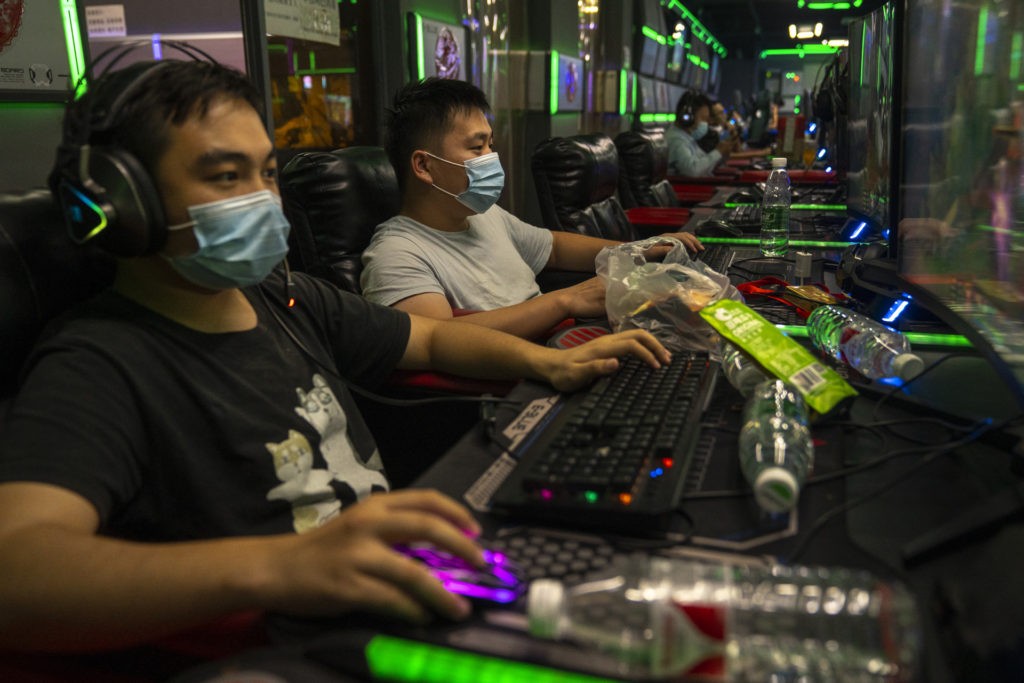China on Monday issued its first new video game licenses in nine months, seemingly backing away from a harsh crackdown on the gaming industry.
On Friday, however, the regime indicated it was still in a crackdown frame of mind by banning live streams of video games that have not been authorized, including many popular foreign games.
China’s video game crackdown began without much warning in August when monthly approvals for new licenses abruptly ceased. The Chinese government usually issues about a hundred licenses per month.
A confidential memo from regulatory officials notified Chinese game companies that more “red lines” were being drawn around content, and their products would now be required to transmit “a correct set of values” to players.
Incorrect values include leaking Chinese state secrets, challenging various Communist Party dogmas, distorting official Communist Party history, propagating “superstitions,” portraying homosexuality in a positive light, and encouraging gambling.
“Some games have blurred moral boundaries. Players can choose to be either good or evil … but we don’t think that games should give players this choice … and this must be altered,” the memo said.

People play online video games in a game arcade on September 11, 2021, in Beijing, China. (Photo by Andrea Verdelli/Getty Images)
Chinese regulators also made it clear they had a dim view of Japan and its signature gaming style, warning creators they should not create any content that glorifies Japanese “militarism” and complaining Chinese games were beginning to look too “Japanese.”
The communist regime did not grant any new licenses during the ensuing nine months, which is roughly the same length of time China stopped issuing game licenses after a previous regulatory overhaul in 2018. Foreign game companies were also blocked from reaching the Chinese market — most notably by shutting down Steam, one of the world’s most popular online game stores, right before Christmas.
The National Press and Publication Administration (NPPA) announced Monday it would issue 45 new licenses, concluding a drought in which gaming mega-corporations like Tencent posted some of their lowest earnings in over a decade. Analysts noted none of the approvals went to Tencent or its closest rival, NetEase.
On Friday, the National Radio and Television Administration (NRTA) said live-streaming of games would now require its approval, and only live-streaming of licensed games would be permitted.
“The rise of social issues such as the chaos in live streaming and game addiction among teenagers have attracted widespread attention from the public for some time. Effective measures are urgently needed to regulate strictly,” the Chinese Communist agency said.
Tencent is scrambling to play along with the regulatory crackdown. Last week the company shut down its Penguin e-sports league, and on Wednesday it shut down its “game booster” service, which helped Chinese gamers bypass the authoritarian regime’s infamous “Great Firewall” and play forbidden games from overseas.
China’s video game crackdown is the most vigorous in the world, but it is not entirely unique. The Asia and Pacific Policy Society at Australian National University noted in February that South Korea banned children under 17 from playing computer games after midnight until recently, and still allows parents to request “game permits” that limit the amount of time their children can play games. Thailand and Vietnam experimented with similar policies, while Australia itself is considering more regulations on video gaming.
The Asia and Pacific Policy Society speculated China’s crackdown could be counterproductive for the Communist Party’s demographic agenda because young Chinese women might become even less willing to have children if the kids cannot be kept busy playing video games.

COMMENTS
Please let us know if you're having issues with commenting.